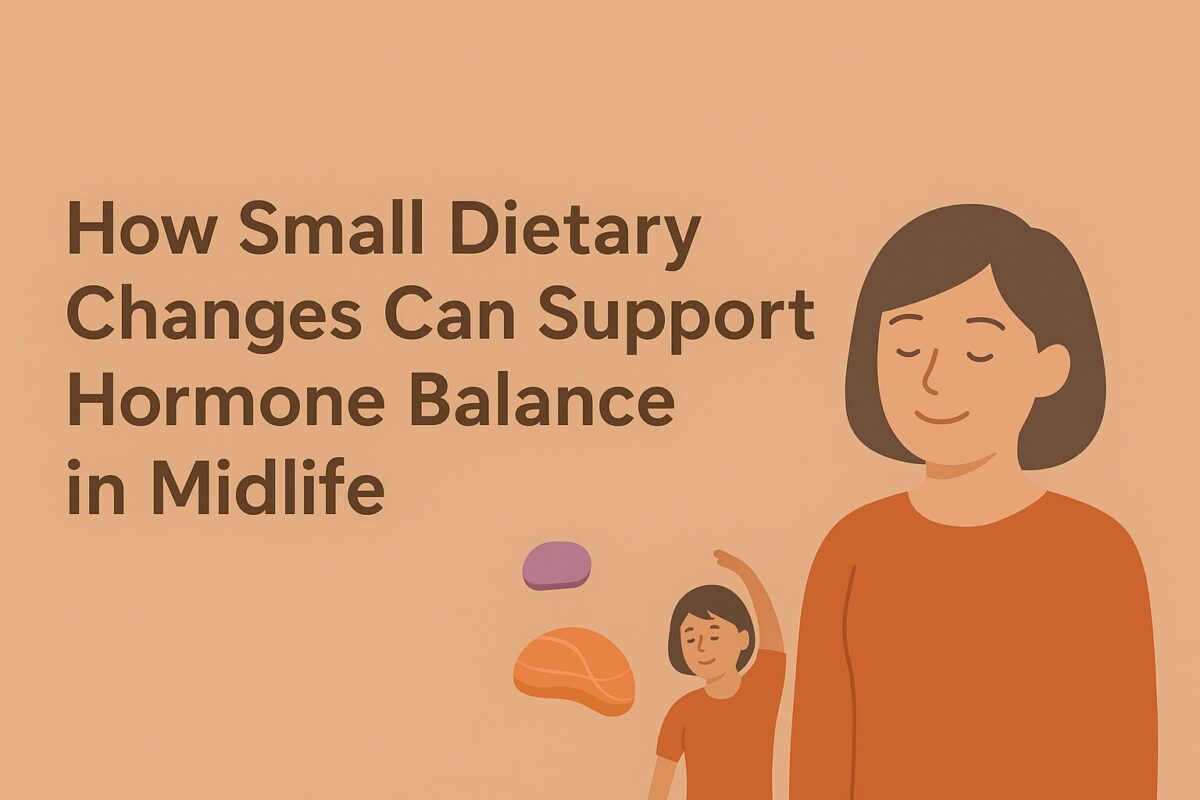Hormonal changes in midlife—especially during perimenopause and menopause—can bring a range of uncomfortable symptoms: fatigue, mood swings, hot flashes, and sleep disruption. While these changes are natural, the way you support your body through diet can make all the difference.
Japanese dietary wisdom, known for its emphasis on balance and natural ingredients, offers simple and effective ways to ease the hormonal transition and maintain vitality in your 40s, 50s, and beyond.
Understanding Hormonal Imbalance in Midlife
The Role of Estrogen and Progesterone
During menopause, the body produces less estrogen and progesterone, two key hormones that regulate mood, metabolism, and bone density. This shift often causes symptoms like irregular periods, weight gain, or reduced energy.
Diet’s Influence on Hormones
What you eat can either support or disrupt your hormonal balance. Highly processed foods, refined sugars, and excessive alcohol can worsen symptoms, while nutrient-dense, natural foods can help your body adapt more smoothly.
In Japan, the low-fat, high-plant-based diet rich in fermented foods and soy is one reason women report milder menopausal symptoms compared to their Western counterparts.
The Power of Soy and Isoflavones
Soy Isoflavones: Nature’s Gentle Support
Soybeans contain compounds called isoflavones, often referred to as “phytoestrogens” because they mimic the effects of estrogen in the body. They help reduce hot flashes, improve bone strength, and support skin health.
However, not all isoflavones are equal. Most Western soy products contain glycoside-type isoflavones, which the body struggles to absorb efficiently.
Fermented Soy for Better Absorption
In Japan, fermented soy products—like miso, natto, and tempeh—transform these isoflavones into their aglycone form, which the body absorbs much more effectively. That’s why Japanese women benefit so much from daily miso soup or natto with breakfast.
👉 Learn more about the benefits of soy isoflavones here.
Fermented Foods and Gut Health
Why Fermentation Matters
Fermented foods like miso, pickled vegetables (tsukemono), and yogurt don’t just support digestion—they help regulate hormone balance by nurturing your gut microbiome.
A healthy gut plays a key role in metabolizing hormones and managing inflammation, both essential for smoother menopause transitions.
Easy Ways to Add Fermented Foods
You don’t have to overhaul your diet. Try:
-
Adding a spoonful of miso to your soup or salad dressing.
-
Eating yogurt with fruit for breakfast.
-
Replacing vinegar with rice vinegar or a dash of soy sauce for a Japanese-style twist.
These small, consistent changes can yield long-term hormonal and metabolic benefits.
👉 Read more about the gut-hormone connection.
Other Nutrients That Support Hormone Balance
Healthy Fats
Omega-3 fatty acids (from salmon, sardines, or flaxseeds) help regulate inflammation and hormone production. Traditional Japanese diets naturally include fish several times a week, providing these essential fats.
Magnesium and B Vitamins
Magnesium-rich foods like tofu, leafy greens, and sesame seeds support mood and relaxation, while B vitamins (found in whole grains and eggs) help the body synthesize hormones efficiently.
Hydration and Green Tea
Green tea provides antioxidants that reduce oxidative stress, while herbal teas like roasted barley (mugicha) help you stay hydrated without caffeine late in the day.
Effisoy®: Japanese Wisdom in a Tablet
If you’re finding it difficult to get enough fermented soy through food alone, Juveriente’s Effisoy® offers a simple, science-backed solution.
Effisoy contains AglyMax®, a unique fermented soybean germ extract that delivers aglycone isoflavones—the same active form found in traditional Japanese foods but in a concentrated and highly absorbable way.
Unlike typical soy supplements, Effisoy doesn’t just mimic estrogen—it helps your body restore its natural ability to produce DHEA, a key hormone precursor that declines with age.
This gentle, natural support helps relieve hot flashes, improve sleep, and boost overall vitality—without the side effects often seen with synthetic hormone therapies.
“Restful sleep finally!!”, “I Am Now Free of Hot Flashes!!”, “Lifesaver”

Small Changes, Big Long-Term Benefits
You don’t have to make drastic dietary shifts to feel the benefits of balanced hormones. Replacing processed snacks with soy-based foods, adding fermented items to your meals, or trying Effisoy can all make a noticeable difference over time.
Japanese culture teaches us that longevity isn’t about doing more—it’s about doing the right small things every day. And when it comes to hormonal balance, those small, consistent habits can help you age with energy, clarity, and grace.







